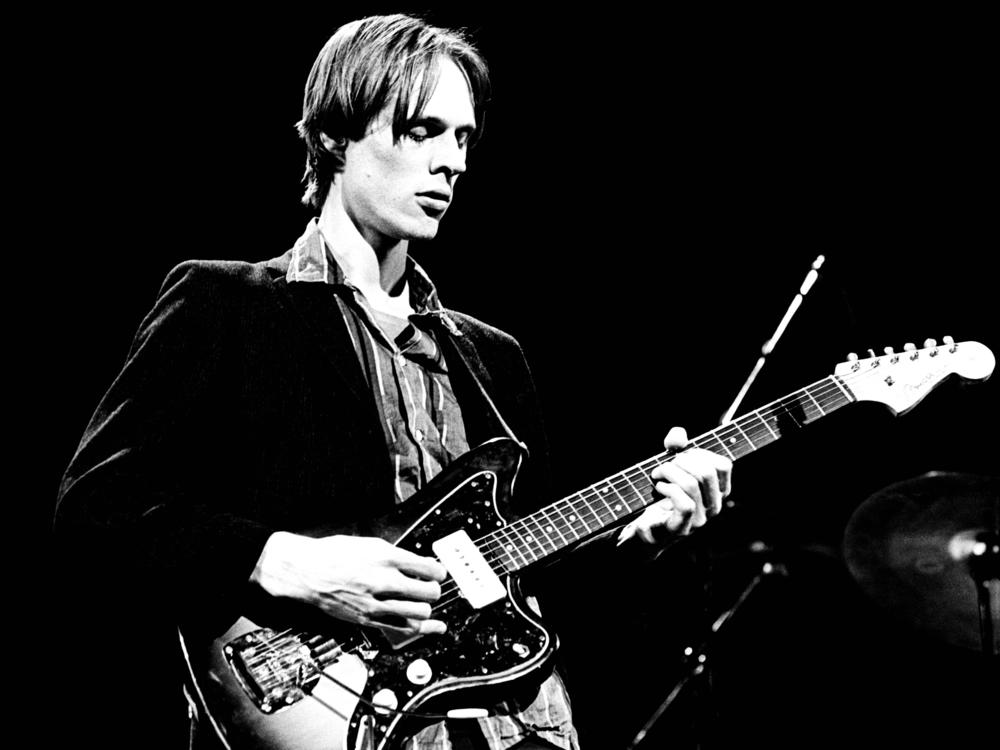Section Branding
Header Content
Tom Verlaine, guitarist and singer of influential rock band Television, dies at 73
Primary Content
Tom Verlaine, a founding father of American punk and a fixture of the 1970s New York rock scene, died Saturday in Manhattan as the result of a brief illness. He was 73.
His death was confirmed to NPR in a press release from Jesse Paris Smith, the daughter of Verlaine collaborator Patti Smith, who also once dated the artist.
"I met Tom when I was a child, not long after my dad passed away," Jesse Paris Smith wrote in a statement to NPR. "In him, I felt the energy of a father, a man to hug, to laugh with, to share in mischievous jokes and wild imagination."
Verlaine was best known as the singer and guitarist with the influential rock band Television. Television's first two albums, Marquee Moon and Adventure, were met with great critical acclaim, if not soaring sales. These albums laid the foundation for alternative rock.
Verlaine was known for his jagged guitar playing style involving heavy vibrato and distortion and off-kilter lyrics, like "Life in the hive puckered up my night / A kiss of death, the embrace of life" from the chorus of Marquee Moon's titular track.
During a musical career spanning five decades, Verlaine also achieved success as a solo artist. He collaborated with the likes of David Bowie and Sonic Youth.
Younger musicians looked up to him, such as the Dream Syndicate's Steve Wynn and Nels Cline of Wilco. On its last album, the Canadian indie pop band Alvvays titled a song after him.
Born Thomas Miller in Denville, N.J., Verlaine grew up in Wilmington, Del. and developed interests in music and poetry at a young age.
He adopted the stage name Tom Verlaine in honor of the French 19th century Symbolist poet Paul Verlaine after moving to New York City in the late 1960s.
Verlaine developed a cult following throughout his career, but never quite achieved mainstream status and eschewed the limelight. "When asked how his own life should appear in a biography," a 2006 New York Times article wrote of the artist, "Mr. Verlaine thought for a moment before offering his preferred self-deprecating epigram: 'Struggling not to have a professional career.' "
"Playing, recording and simply being Tom's friend for over 30 years and until the end has been a wonderful journey and a privilege," Verlaine's longtime engineer and collaborator Patrick Derivaz told NPR.
"Tom and I had an hysterically funny conversation that lasted the last 42 years," guitarist and Television member Jimmy Rip wrote in a statement to NPR. "He was blindingly smart, incredibly well read as well as surreally silly! Standing 10 feet away onstage night after night year after year and STILL trying to figure how he did what he did was the great honor [and] pleasure of my life."
Copyright 2023 NPR. To see more, visit https://www.npr.org.
Bottom Content

